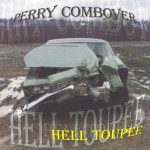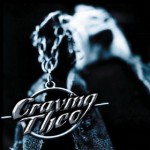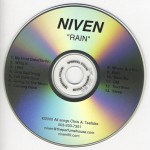 The Sophia Starlight
The Sophia Starlight
The Sophia Starlight
Demo (Self-Produced)
Here’s a wonderful little suite of three songs contributed by a new quartet of scene veterans. The Sophia Starlight is something of an all-star team, comprised of Doris Daze front-woman, guitarist/vocalist Maria Callahan, stalwart drummer Rene Ormae-Jarmer from Here Comes Everybody and two lesser-known players: solid bassist Mel Poe, who plied her craft with Messinger for several years in the mid-’90s; and vocalist Susie Blue, who created a brief stir in a stint with Sweet House in the latter ’90s.
Together, they create a smooth, laid-back sound that does not lack for energy. But there is an easy assurance to the way they play together. Production mastermind Callahan and co-producer Danny O’Hanlan have devised a seductively mellow mood around Ms. Blue’s extraordinary vocals. Those familiar with Sue’s vocals for Sweet House, would recall that she was a Joplin-esque Soul singer, who was mostly over the top most of the time.
But here, reined-in and as restrained as a smoldering fire on the verge of exploding, Blue defines her world with such brilliant vocal finesse, that it is impossible for the listener not to be ensnared into involvement. Her talents are world class, and it is her great achievement to have evolved as a singer to finally realize them; and to Callahan’s credit for eliciting from her such an impressive performance.
The first song, the winsome “Queen Henry,” chugs along like early, Exile-period Liz Phair, Blue’s evocative voice blowing like a warm wind across subtle instrumentation– layers of refined guitars, acoustic, electric, even Harrison-like electric 12-string in places; over smart work by the rhythm section.
“Sour” has a folksy vocal feel, while the rhythm section vamps on a suave Soul groove. Mel’s graceful bass sprint and Rene’s insistent snare snap augment Maria’s bluesy guitar solos and clever keyboard interjections, as Susie almost matter-of-factly identifies the nature of an imperfect relationship. A song of great, harnessed power.
The rockier tune among the three, “Slip” again recalls the best of Liz Phair, with a strong, memorable chorus over a big drum beat, jagged guitars and roiling piano/organ passages. Susie’s plaintive vocal calls to mind Tracey Thorn of Everything But The Girl, adding a haunted, haunting quality to the arrangement.
In the right hands this demo could have the same impact as Liz Phair or Juliana Hatfield did with their debut recordings. Blue’s voice is eminently original, accessible and intimate. A superlative job of arranging each tune with well-executed instrumentation only adds to the effect. This is a wonderful recording that displays a great deal of promise. One might wish it were longer, but that would be the only complaint one could have about this recording.
 Perry Combover
Perry Combover
Hell Toupee
Self-Produced
You know, maybe it’s old age catching up with me, but it took me a while to catch the joke in this band’s name. I knew there had to be a joke there, I just couldn’t figure it out right away. But it’s kinda clever.
The music here is straight-forward, Country-tinged Rock. Singer/guitarist Matt Johnson addresses each lyric with sort of a thick, hicky drawl. Lead guitarist Chet Chavez adds chiming slide-chords that sometimes have a pedal steel guitar tonality. The lyrics tend to have a wry twist and a sense of humor. It╒s well played stuff if not exactly doctoral thesis material; which tends to deal, good-naturedly, with the subjects of drankin’ and a thankin’.
Bassist Phil Lousy and drummer Michael McCurdy provide ample support in the rhythm section, behind Johnson and Chavez– perky guitar formations. In many ways the band sounds like Creedence Clearwater Revival fronted by Lee Hazelwood–who worked with Nancy Sinatra in the ’60s. In other ways, it’s Son Volt/Wilco territory.
The first five songs of the half dozen presented here are essentially interchangeable. Most start with a little flat-picked riff that evolves into the chords of the song. From there Johnson opines methodically through the lyrics. “Chore Pride,” the first track, is an ‘unrequited love’ song, that percolates through the verses on a jaunty little riff, before turning darker in the choruses. Chavez’ nifty slide work echoes that of master David Lindley at times.
“Maybe Not” maintains the cornpone level to a high degree, with witty kiss-off lyrics and more tasty licks from Chavez. “Cash” has a rockier chord progression, crisper execution, but maintains the hayride all the same. “Down” works off a nice progression as well, with a cool swing section in the middle solos. But the lyrics remain in the trailer park. “I put on the Who, to see me through/I got Jack Daniels, I got Keith Moon/But if I drink too much liquor/I put on my vinyls of Twisted Sister.”
The brief ballad “Duke” is a horse of a different color. Moody and stripped down to just two guitars, it is more direct than the other songs. Less elliptical in its approach. This would be a direction that Johnson and his mates should further explore and integrate into their sets.
For, much of the music here, while deftly played and sincerely rendered, is repetitious in structure and presentation. Perry Combover have some real strengths: Johnson’s unique vocal stylings and Chavez’ impressive lead guitar work the chief among them. But the band must resist the temptation to gravitate toward the familiar–to what is safe. They must challenge themselves to create better songs, that utilize their strengths most succinctly. If they can do that, there is reason to believe that they might one day realize the potential they exhibit on this debut album.
 David Andrews
David Andrews
Get Me Out Of This Place
Padre Productions
Hopefully the title of this album is not some Freudian cry for help, for this album comes from one of Calobo╒s primary movers: singer/songwriter/guitarist David Andrews. Though he uses none of his Calobo comrades on this outing, it is not as if Andrews is trying to reinvent the wheel on his first solo venture. especially effective are lap steel monster Chris Funk, the fiddle and mandolin work of Chris Murphy and the Emmylou flavored harmonies of Stephanie Schneiderman. Overall, the musicianship is a bit more sophisticated than one would anticipate from the parent band. So maybe the title is more apt than anyone might suspect.
Andrews is nothing if not an earnest young man. His humble, homespun didactic discourses cover familiar home and hearth subjects; maintaining a high level of craft through each of the ten songs submitted–if not as high a level of emotional commitment.
The album starts off strong with “Runnin’ Away Again,” an uptempo number that calls to mind Jackson Browne, with a dash of Lindsay Buckingham and a little Jimmy Buffet thrown in. Bassist Ted Camp and drummer Sean Shaklett commingle with lead guitarist Dan Balmer to create a substantial foundation, over which Andrews lays his twangy, reedy tenor voice, joined at the choruses by Schneiderman’s high harmonies. Funk, and Mike Walker on Hammond organ, come in at the second verse to fill out the sound. A nice song.
The title track takes a stab at Don Henley╒s target demographic, but Andrews lacks the Eagles’ cynicism and ability to cut to the chase. Walker’s organ tones, Funk ethereal slide work and Schneiderman’s tight harmonies add to the dense, hymn-like tone of the song. Murphy’s sonorous fiddle nearly passes for a sax on “Mistress Of The Moon, ” a tune that begs for a strong chorus, building up several times toward something, but never quite reaching it.
Murphy manages to educe unusual tones form his mandolin on “2000 Miles,” managing to create a sound that resembles the bell-like tones of a marimba or an electric keyboard. A Nice touch on a perky tune. “I Believe,” provides a litany of Andrews’ creeds and convictions– “I believe in waiting for the setting sun/Take your chances coz livin’ easy’s never done/And in the morning don’t wake me til the dream is done.” Hmmm….
“Ballad Of The Sad Cafe” has a Neil Young, After The Goldrush-period ring to it, without the pertinence perhaps. Whereas “Make Me Happy” runs closer to Everybody Knows This Is Nowhere. Something closer to a Calobo jam tune, “The Little Things” maintains that Doobie Brothers “Listen To The Music” rhythm guitar, which drives the song with a relentless good vibe.
Murphy somehow makes his fiddle sound like Paul Horn’s flute in the Taj Mahal on “Stitched In Wool.” Meanwhile Andrews strums his capo-ed acoustic guitar and relates a story, possibly autobiographical, in song where little touches of African chant bubble up at the turnarounds..
Given Calobo’s incredible sales success at Locals Only, there is every reason to believe this recording will sell equally as well. Top-knotch musicianship gives every song a fighting chance, even those that have not much else going for them. Still, David Andrews is an engaging performer, if not particularly electrifying. His easygoing demeanor is not likely to offend anyone, though it;s not likely to blow anybody away either.
 Craving Theo
Craving Theo
World Of Mine
Self-Produced
Guitarist Calvin Baty has been on the local scene for some time now, spending several years with Glass Chunk (which later became just plain old Chunk) a band that, under the auspice of lead singer Tony Mandella, often sounded like a Styx clone.
Gone is Mandella. Baty now stands at the vocal mic to act as front man for Craving Theo. From the first bars of the first track, “Hold Me Down,” it is instantly obvious that someone in the organization had some money to spend on the project. Hiring Rick Parashar (Alice in Chains, Soundgarden, Blind Melon) to produce it couldn’t have come cheaply. But, without a doubt, Baty and his sidekicks– bassist Brian McMullen, drummer Jason Dunn and second guitarist/backup vocalist Bob Capka, got their money’s worth. Craving Theo sounds like any of the aforementioned three bands, with maybe a hint of Stone Temple Pilots thrown in.
And if this were 1990 that would be a groundbreaking sound. But a decade later, the musical terrain has changed drastically. So, while the sound is very big, very ballsy, it’s not exactly fresh and new. Still, it’s an album of which the band can be proud.
Sounding uncannily like Alice In Chains. the band storms through “Hold Me Down” (there are two versions of this song on the album, with only slightly different mixes between them), working a familiar circuitous riff to its logical extreme. The title track works a dark, metalic guitar riff, as Parashar utilizes a number of studio tricks to break the tune up; preventing it from becoming repetitious.
Continuing the onslaught, “Sky” is a tough sounding number, which features a ghostly guitar solo in the middle section. “Freak City” is a change of pace ballad that works nicely. A memorable chorus and another strong solo by Baty helps to set this track apart. “Lie” is quite reminiscent of early STP: forebodingly dark, menacing and angry.
An array of well-placed effects help to set the mood in “Push Away,” creating an atmosphere rife with tension. “Ezra” is another curveball, a jangling number with folk roots–calling to mind Lynyrd Skynyrd (with Layne Staley fronting them). Echoing Blue Oyster Cult, “When” works off a snaky “Don’t Fear The Reaper” guitar lick that is quite infectious and enormously effective. One of the strongest cuts.
“What Do You Want” sustains the sense of variety, while maintaining a definitive “sound” for the band. That sound may be derivative, but it is nonetheless impressive for its precision and muscularity. “All I Am” takes a “Peter Gunn” riff, torques it up to triple-speed, adds fluttering kick drums and a guitar onslaught that calls to mind the best work of Sponge.
The heaviosity continues with the chunky guitars of “You Say,” which adds a strong vocals on the verses, while the choruses are pure Alice. The same could be said of “Say Anyway,” which could be the follow up to Alice’s “Rooster.” The instrumental “You Got It” is something of a departure, with a straight-ahead big beat and its antecedents perhaps in Johnny Winters’ “Frankenstein.”
There is something to be said for hiring a big-gun to produce your recording project. For one thing, industry honchos are sure to take notice of your product. For another it more or less guarantees a big time sound. Craving Theo certainly sound as if they are in the big leagues with World Of Mine. All the accouterments and adornments are in just the right places.
But just the same, Rick Parashar’s place in all of this would be moot if the band were not up to the challenge. Craving Theo are a very capable band with good songs and stellar ensemble work. What remains to be seen is whether the band can catch up to the bands they emulate: who have many years and several albums as a head start. CT are certainly as capable as those other bands. What they lack are their fanbases. Whether or not the world is ready (or desirous of) another act in that stable, only time will tell.
 Niven
Niven
Rain
Self-Produced
Last March I took long-time scene veteran Chris Tsefalas to task with the debut album by his band Niven. Chris, whose music tends toward the pensive Michael Penn/Chris Whitley school of introspection, drew criticism for the lyrical short-cuts he seemed to be taking with his songs.
But this sophomore venture by the band seems far more congealed on all levels– both from the standpoint of the tight ensemble work by the band–and especially from the care Chris has taken with the words, to concoct a heady brew of eleven standout songs (and two great instrumentals) that stick in the subconscious like memorable dreams. This is a great album that would instantly appeal to fans of the aforementioned, as well as those of Elliott Smith, E and Crowded House.
Along with bassist David Stricker, guitarist Mark Wanaka and keyboardist Jean Pierre Garan, Chris and company have enlisted the aid of several drummers to complete this project: primarily John Moen, late of the Dharma Bums, but also Carlton Jackson and Todd Bryerton as well. While Stricker’s work with Billy Rancher and the Unreal Gods and Wanaka’s stint with Crazy 8s have been well documented, it is Garan who is the biggest surprise here, adding wonderful Hammond organ flourishes to nearly every cut.
The level of Tsefalas’ songwriting is quite sophisticated. Though his songs sound as if they were obviously written by the same guy, they do not sound at all similar to one another, other than through their arrangements and presentations. Most of the songs center around a Tsefalas guitar riff or a chord progression, but he somehow manages to present each with a special color, which allows it to stand uniquely apart from the others.
The album begins with “My First Date (Sicily),” a seductive number, that’s wrapped in Chris’ warm, sinewy open string guitar figure. The song unfolds slowly, as instruments enter the sonic picture very subtly. It is fully a minute and a half before the band finally breaks free, to hit a hard stride. When the instruments drawback in denouement, a cleverly placed drum loop picks up the beat through the resolution.
A smart, violin-toned slide guitar provides the motif in “Whig It,” a reference no doubt to Afghan Whigs, Tsefalas’ roiling guitar, coupled with Stricker’s molten bassline resembles that of the Whigs. Chris sounds like Peter Gabriel’s little brother– in perhaps his best vocal performance ever. Impassioned.
“I Will” kicks off like Neil Young’s”Ohio,” but heads in a different direction, especially in the fervor of the chorus. “One Sad Song” plays out with an acoustic guitar over the relentless waltz of a drum machine, as Chris emotionally utters “It’s the poison you drank/The stuff in your tank/The fish ever walk that same plank as your heroes.”
Working from a ballsy groove, Garan provides thick organ textures to “Tall Dark Girls,” jagged discord in the turnarounds, chunky pads in the verses. Chris lays ethereal backwards guitar down in the solo. “Going To The Moon,” works off a Hendrix-like figure, with a chorus that could easily be by the Finns of Crowded House. “Coming Back” is a driving instrumental.
A flowing momentum guides “Where Are You,” in a style that would appeal to Elliott Smith fans. Keith Moonish drums in the second half help to propel the song. The title track plays a skittering 3/4 guitar riff in the verses against 4/4 time in the chorus, what sounds like Wurlitzer electric piano tones percolating underneath. A very cool track.
The Wurlitzer tones inaugurate “Save Me” before the rest of the instruments fall into place; developing into a big beat affair, with grand organ embellishments in the chorus. “DM” has a Whigish feel to it as well, with Garan╒s Hammond swelling in the dramatic choruses. That tune segues into the second instrumental of the set, the moody “Red Wine.” Jangly guitar chords play against slide guitar plateaus and dense clusters of organ tones, as Chris utters a happy lullaby.
There is no doubt that this is Chris Tefalas’ most coherent and cogent work, ever. This is saying quite a bit, as the man has headed several other label worth bands in his years on the local scene. But here with Rain, he has hit upon a definitive sound that he can call his own. he no longer sounds like a clone of his influences. He is instead, the sum of them. This record deserves to be heard by a much larger audience than this city can produce.
